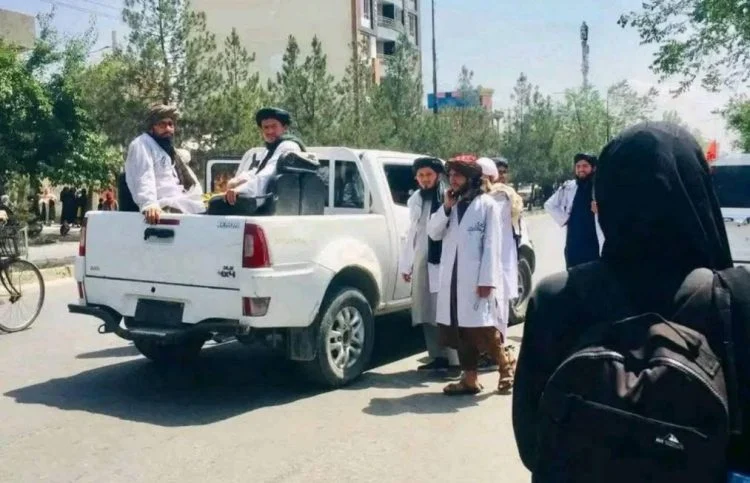RASC News Agency: In a disturbing escalation of gender-based repression, local sources in Kabul’s western Dasht-e-Barchi district report that Taliban “morality enforcers” have arrested women and girls merely for walking near their homes without a male guardian, reaching as close as a hundred meters from their residences. Eyewitnesses confirm that on the morning of Wednesday, July 30, Taliban patrols conducted unannounced house-to-street door sweeps in the Qala-e-Naw and 20‑Meter Road neighborhoods. Women seen traveling alone or walking with female companions were forcibly stopped, detained, and transported to local detention centers all without prior warning, legal justification, or official documentation.
This incident follows similar detentions in Shahr-e‑Naw, where young women were recently arrested on spurious grounds such as “improper dress” or lacking a male escort. These are part of a systematic regime policy implemented since 2021 that mandates women have a Mahram (male relative) accompany them in public at all times. Over the last week, multiple videos and firsthand accounts have emerged showing women being brought to Taliban-run facilities where they allegedly endure verbal abuse, physical assault, and psychological intimidation. Several witnesses report that families were summoned to retrieve detained women only if a male guardian appeared in person. Others said Taliban officials required written pledges from families guaranteeing “future adherence to moral codes.”
Human rights organizations and United Nations agencies have issued renewed statements condemning these arrests as blatant violations of fundamental human rights. Observers stress that Afghanistan is now experiencing a form of gender apartheid, with women stripped of autonomy and civil dignity under the pretext of enforcing religious edicts. Taliban rhetoric purports these measures to be “Sharia‑based,” yet many Islamic scholars both within and outside Afghanistan have denounced such practices as neither Islamic nor juridical. Instead, these measures are widely perceived as politically motivated tools for maintaining social control and consolidating power. Critics argue they starkly contravene Islamic teachings on justice, human dignity, and proportionality.
The Kabul arrests are part of a broader campaign targeting women’s participation in public life: from closing girls’ schools and barring women from the workforce, through enforcing strict mobility limitations, to banning women from public spaces. These actions collectively serve to erase women from Afghanistani society. If unchallenged, the Taliban’s oppressive policies will deepen internal alienation and provoke stronger global condemnation. The regime risks accelerating its isolation not only diplomatically, but also morally by undermining its already tenuous legitimacy.






